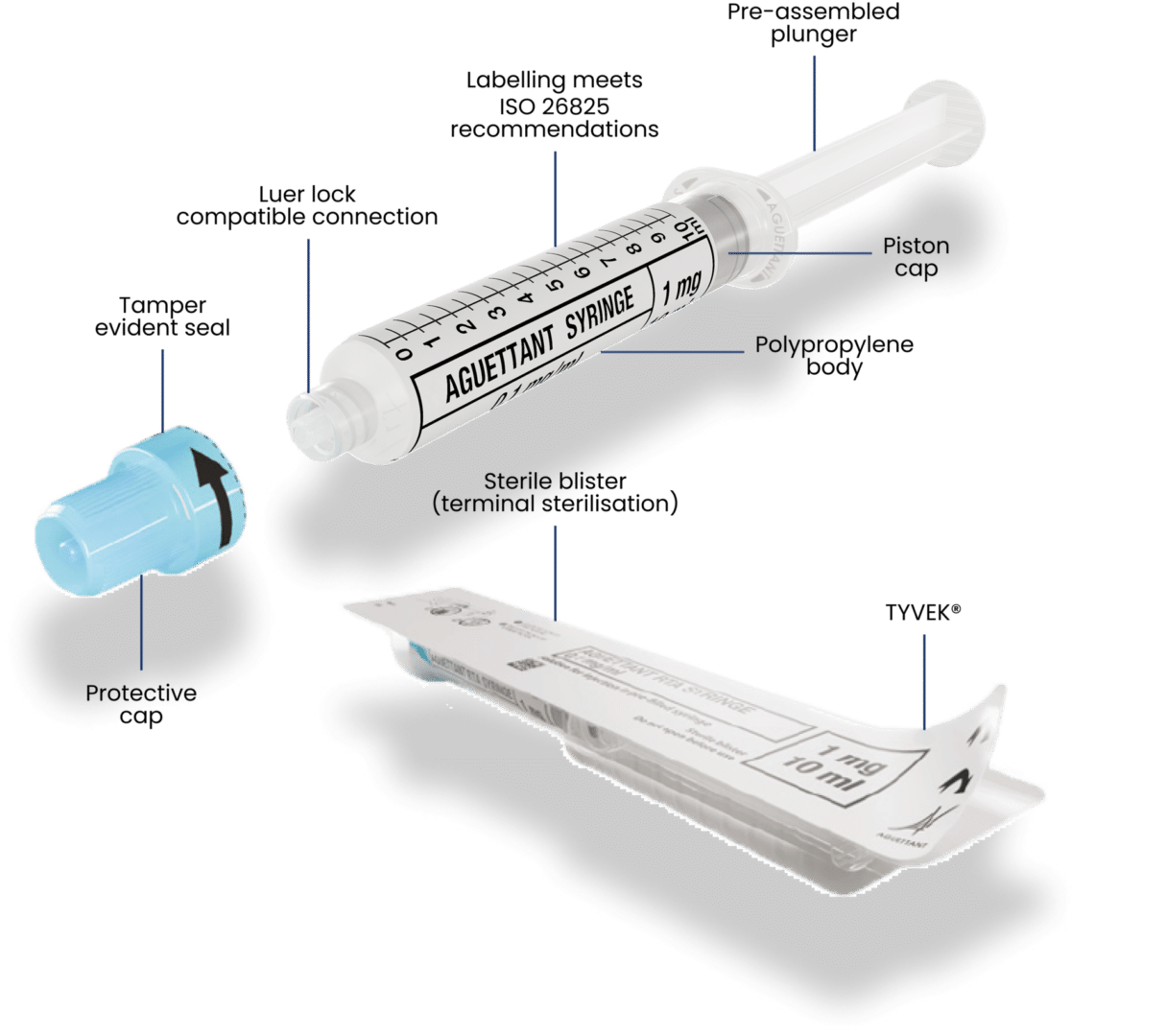Handling injectable medications in anaesthesia
‘Prefilled syringes have multiple advantages, and their purchase and use should be promoted.’ (2)
‘Purchase ready-to-administer products wherever possible. Prefilled syringes have the following advantages: reduction in labelling errors; reduction in bacterial contamination; potential for tamper-evidence; and potential for medication recognition mechanisms’. (2)
Professional guidance on the safe and secure handling of medicines
‘Medicines are presented as pre-filled syringes or other ‘ready-to-administer’ preparations wherever possible’. (3)
Implementing human factors in anaesthesia: guidance for clinicals, departments and hospitals
‘Use pre-filled syringe if available. E.g. for emergency drugs such as Metaraminol, Ephedrine and Atropine.’ (1)
Prefilled syringes in intensive care units and operating theatres
‘Prefilled syringes can also support patient safety improvement as well as medication error and medicine waste reduction’ (4)
Our polypropylene syringes are pre-filled and ready-to-use in sterile packaging.
We strive to design innovative, ready-to-administer solutions to prevent medication errors, especially in emergency situations. (6)

When fast administration is essential, hand-preparing drugs at the bedside can result in delays in treatment. (6)
Ready-to-use pre-filled syringes eliminate preparation time, making them a suitable solution for emergency situations.
Use of pre-filled syringes eliminates needle-stick and cut injuries when opening glass ampoules. (8)
Up to 86% of injectable drugs prepared in advance in the operating theater and intensive care are discarded at the end of the day. (9)
Considering all components used in the preparation steps of ampoules (syringe, drug, needle, pad, diluent…etc), pre-filled syringes could reduce your overall plastic use and the amount of waste you send to incinerators.